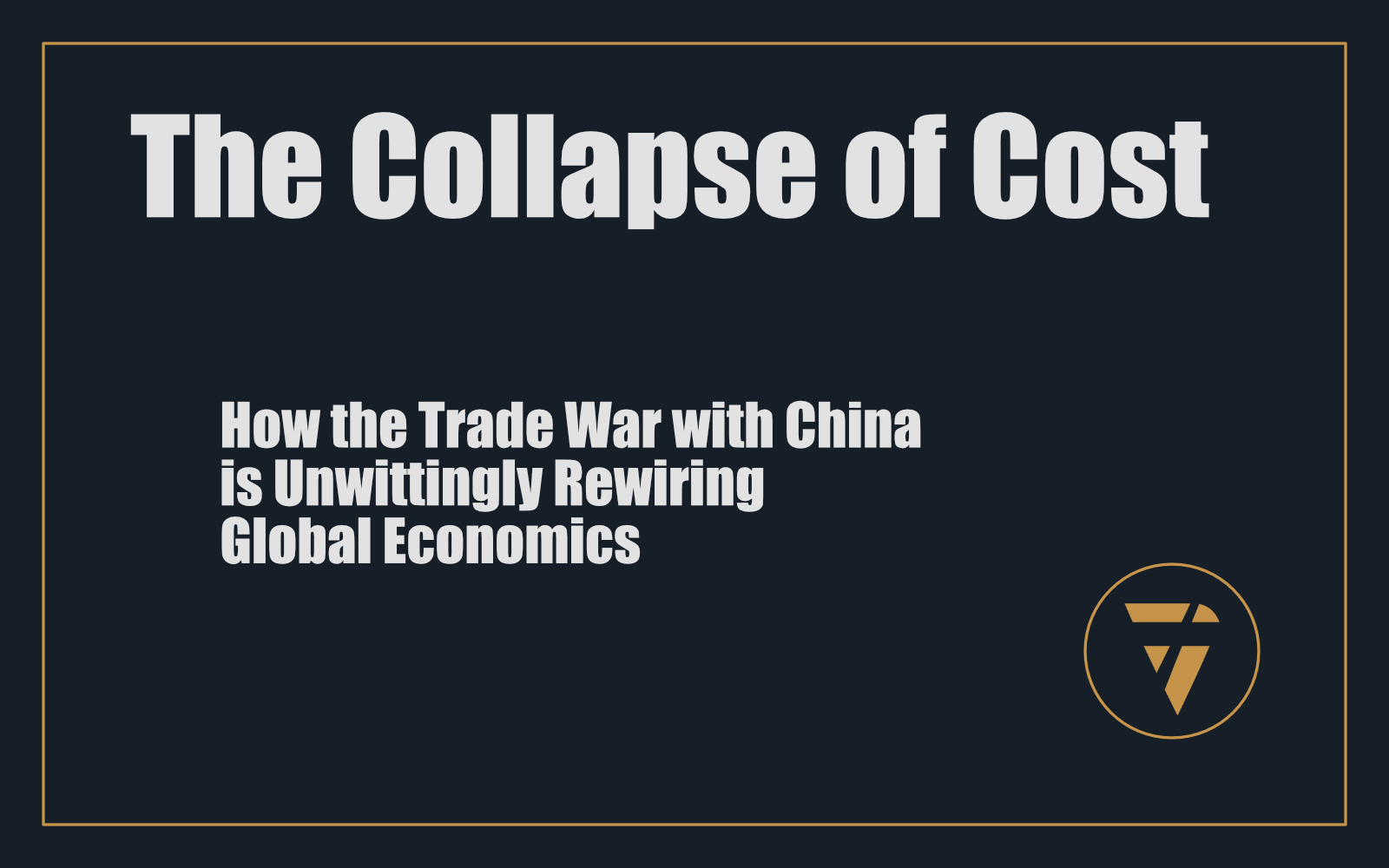The Collapse of Cost

How the Trade War with China is Unwittingly Rewiring Global Economics
You can buy a $38,000 luxury handbag for $1,000 on TikTok. Not a knockoff. An indistinguishable replica. The stitching matches, the hardware matches, even the unboxing experience is engineered. What’s different? It’s not sanctioned. And it’s not secret. It’s strategic.
What began as a border conflict over tariffs has matured into a civilizational pivot. China is no longer honouring the West’s economic rules. Intellectual property, brand premium, distribution rights... scrapped. The illusion of global consensus on commerce has ruptured. And the United States, once the gravitational centre of modern capitalism, is now watching its system be reverse-engineered and resold on livestreams by 19-year-olds who don’t care about Rolex patents or Hermès exclusivity. They care about clicks.
This isn’t just e-commerce gone rogue. It’s the full-spectrum collapse of cost-based authority. When a population of 1.4 billion stops treating Western value as sacred, the supply chain doesn’t just shift, it secedes.
China’s pivot is clear: circumvent American dominance by accelerating direct-to-consumer ecosystems, dissolving IP dependency, and embedding loyalty inside the transaction itself. Not in logos. Not in heritage. In price, immediacy, and emotional proximity.
The result? Brands become vulnerable. Retail becomes obsolete. And American economic identity—once protected by cost asymmetry, enforcement muscle, and global admiration—bleeds into irrelevance in sectors it once controlled.
System Insight:
There are three forces now driving the new economic choreography:
- Disintermediation as Default
Middlemen are being assassinated. Retailers, agencies, reps—dead weight in a world where live-stream commerce closes in minutes and logistics are run by algorithm, not relationship. The handshake is gone. The direct pipeline wins. - Brand as Infrastructure, Not Image
Brand equity is no longer an asset. It’s an albatross. Those still defending margins via prestige are watching their relevance decay in real time. In contrast, platforms that turn brand into function—distribution layers, real-time inventory, adaptive pricing—are absorbing the economic mass. - National Sovereignty Through Commerce
China is not cheating. It’s adapting. Refusing to honour IP is not theft, it’s a declaration. Economic sovereignty now means making your own rules and exporting them, not begging for parity inside the old system.
Deployment Path: What This Means for the U.S. and Canada
- United States: Immediate degradation of consumer trust in premium products. Erosion of luxury categories. Brand inflation without defensible value. Massive vulnerability in traditional retail, logistics, and advertising models. The old economic operating system—IP + branding + margin—cannot hold.
- Canada: This is a generational opening.
- Trust Leverage: Canada can position itself as the middle path... still IP-conscious, but far more agile. Build trade networks with emerging economies who want stability without submission.
- Manufacturing Reinvention: With cost compression now public domain, the opportunity is to reframe Made-in-Canada not as a premium, but as a precision layer. Quality, ethics, transparency...commodities that will reprice high-trust commerce.
- Digital-First Trade Architecture: Build Canadian platforms that integrate global sourcing, instant distribution, and sovereign compliance. Marry blockchain verification with consumer commerce. Don’t just sell products, sell proof.
- Cultural Monetisation: While the U.S. fights to defend legacy brands, Canada can export narrative. Trust. Calm. Ethical leverage. Become the country of “trusted commerce” in a world of digital entropy.
No Summary. Only Trigger.
America taught the world how to sell. China is now teaching the world how to skip the line. But Canada? Canada is sitting on a new empire. One where truth, trust, and transparency aren’t slogans... they’re the currency.
Move now. Before the market learns it doesn’t need you either.
What sector do you want to position Canada in first? Let’s build the architecture.
This is what I’m working on. Tell me what you think, I enjoy the conversation! Subscribe and follow the work in real time.
Thanks!
B

“They’re not knockoffs. They’re declarations.”
The US will call it theft... and? So what? China calls it adaptation to a new market reality.
Canada just got a five-year window to rebuild its economic identity... before no one needs us either.
PS -






